Team Aug 31, 2024 No Comments
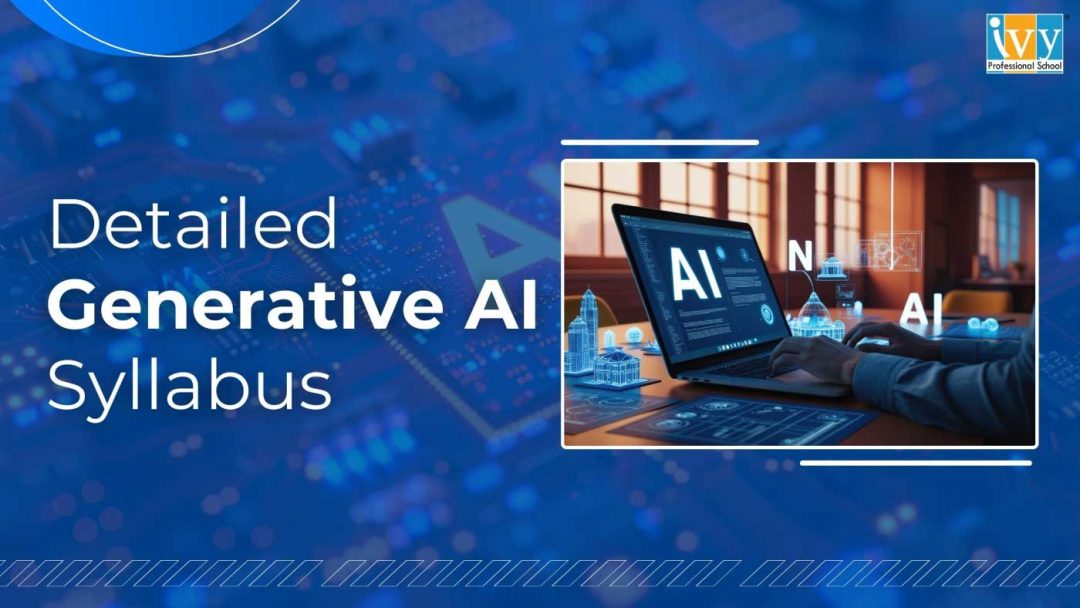
A comprehensive generative AI syllabus acts like a roadmap. It tells you what essential topics you should study, what skills you should develop, and what you should expect from the subject. This way, you can plan your studies and make sure you don’t miss anything important.
In this blog post, I will break down the generative AI syllabus of Ivy Professional School’s IIT-certified GenAI course. You will understand what topics you should learn and in what order to easily master this AI technology.
If you want to become a generative AI expert, you can join Ivy Pro’s GenAI Certification course, which is made in partnership with E&ICT Academy, IIT Guwahati.
The course follows the following detailed syllabus designed by industry experts. It focuses not only on in-demand skills but also on interesting industry projects. This way, you gain solid practical experience and the confidence to face real-world problems.
This module covers the basics of Python programming, which is important for building generative AI apps. It starts with setting up Python, including installation and IDE configuration.
Then, you learn about Python data types such as strings, integers, lists, and dictionaries, followed by control flow, loops, and functions. You also learn libraries like Pandas and Numpy for data manipulation.
The module covers hands-on projects like creating functions for a recommendation system and preparing data for AI model training using Pandas.
In this module, you are introduced to the core concepts of AI and generative AI. Here, you understand what makes generative models unique.
The module covers various types of generative models and provides an overview of OpenAI APIs, particularly focusing on their application in text generation.
Then, you work on a project where you use Python to interact with OpenAI APIs to generate text.
Related: 7 Must-Read Generative AI Books
This module introduces the basics of machine learning. You learn linear models, decision trees, and k-nearest neighbors (k-NN) to build both classification and regression models.
The hands-on projects help you create and evaluate models using multiple algorithms to ensure robustness and accuracy.
Next, you start with deep learning. You learn what it is, the important concepts in it, and activation functions and optimizers.
The syllabus takes you through different deep learning architectures, such as Multi-Layer Perceptrons (MLPs), Convolutional Neural Networks (CNNs), Recurrent Neural Networks (RNNs), and Long Short-Term Memory (LSTM) networks.
The hands-on project helps you build models for tasks like object detection and image classification using CNNs.
You know AI chatbots? They are AI-powered software programs that can understand natural language and speak just like humans. In this module of the generative AI syllabus, you build an AI chatbot. Interesting, right?
It starts with the basics of chatbots- what they are and how they work. You learn to design chatbot workflows using flowcharts and user interactions. You also learn how Large Language Models (LLMs) and Generative AI can be combined for chatbot development.
Then, you set up a Python environment, install the necessary libraries, and initialize a chatbot project. You also practice generating and refining conversational prompts, responses, and logic.
You fine-tune the chatbot using real-world data, optimizing its performance and evaluating its effectiveness.
The module concludes with a capstone project where you deploy your chatbot on a web platform, integrating it with OpenAI’s API for real-time interaction.
In this module, you create an AI tool for social media automation. It begins with an introduction to automating social media tasks and understanding how to generate text and images for these platforms.
Then, you learn to implement LangChain components within this tool to streamline content generation and management. Then, you construct a search index and entity store to enhance content retrieval.
You also develop scripts to generate and schedule social media posts using OpenAI APIs. Then, you deploy the generative AI tool on a cloud platform, ensuring it operates smoothly.
Additionally, this fifth module of the generative AI syllabus covers the basics of resume creation using AI.
You learn how to generate personalized resume content using OpenAI APIs and style it using Python libraries like ReportLab or PDFKit. Finally, you develop and deploy this AI tool.
In this module, you build an AI tool that can generate product images for e-commerce.
It starts with an overview of the image requirements in e-commerce, such as product photos, catalogs, and customization options.
Then, you generate product images, variations, and customizations using the DALL-E API, which you learn to integrate and configure for seamless use.
The module also covers automating image uploads using Python scripts for batch processing, image transformation, and optimization.
You also learn to implement serverless computing with cloud functions for scalable and efficient image management.
The module concludes with a capstone project where you implement DALL-E for dynamic image generation tailored specifically for e-commerce platforms.
In this module of the generative AI syllabus, you build a voice assistant that can recognize and generate voice like humans.
First, you learn about the components of voice recognition systems, including audio processing, feature extraction, and pattern recognition. Then, you implement basic voice recognition algorithms.
Next, the module covers the use of Whisper API for voice generation and customization.
You understand the design principles and architecture of a voice assistant and learn concepts like speech recognition, natural language understanding, dialog management, response generation, etc.
Finally, you deploy your voice assistant using cloud-based, on-premises, and hybrid solutions.
Related: Advantages and Disadvantages of AI
In this module, you explore the development of a news aggregator application that utilizes text summarization techniques.
You start by evaluating popular news APIs and setting up API keys for integration. The module covers the implementation of text summarization algorithms using libraries like NLTK or BERT, allowing the generation of concise news summaries.
In the hands-on project, you work on building both the back-end and front-end of the aggregator using frameworks such as Flask or Django.
You also modify the aggregator’s back-end to enhance user experience and deploy the completed application on a cloud platform.
The final module of the generative AI syllabus focuses on advanced techniques in multimodal generative AI. It covers Early Fusion, Late Fusion, and Hybrid Fusion methods using ChatGPT, DALL-E, and Whisper AI.
You explore attention mechanisms across these modalities, Progressive GANs, StyleGAN, and Vision-and-Language Transformers (VLT).
The module also includes temporal modeling for multimodal sequences and meta-learning algorithms.
Then, you learn about knowledge distillation and model compression for optimizing ChatGPT and DALL-E.
In the final capstone project, you develop a unified AI assistant that integrates text generation, image creation, voice synthesis, and advanced prompting techniques.
Related: How AI will Change the World?
You already saw the generative AI syllabus for this course. It’s an 18-week live online program that will make you an IIT-certified AI expert. It covers everything from the basics of AI to advanced topics like machine learning and language models.
The course is taught by experts from IIT Guwahati and top companies, so you will be learning from the best. And, as we said, you will get hands-on experience developing real-world generative AI applications, which is a great way to build a portfolio and stand out in the job market.
And with career support like resume help and interview prep, you will be well-prepared to launch your career in generative AI. So, visit the GenAI course page to learn more about it.

Prateek Agrawal is the founder and director of Ivy Professional School. He is ranked among the top 20 analytics and data science academicians in India. With over 16 years of experience in consulting and analytics, Prateek has advised more than 50 leading companies worldwide and taught over 7,000 students from top universities like IIT Kharagpur, IIM Kolkata, IIT Delhi, and others.
Team Aug 29, 2024 No Comments
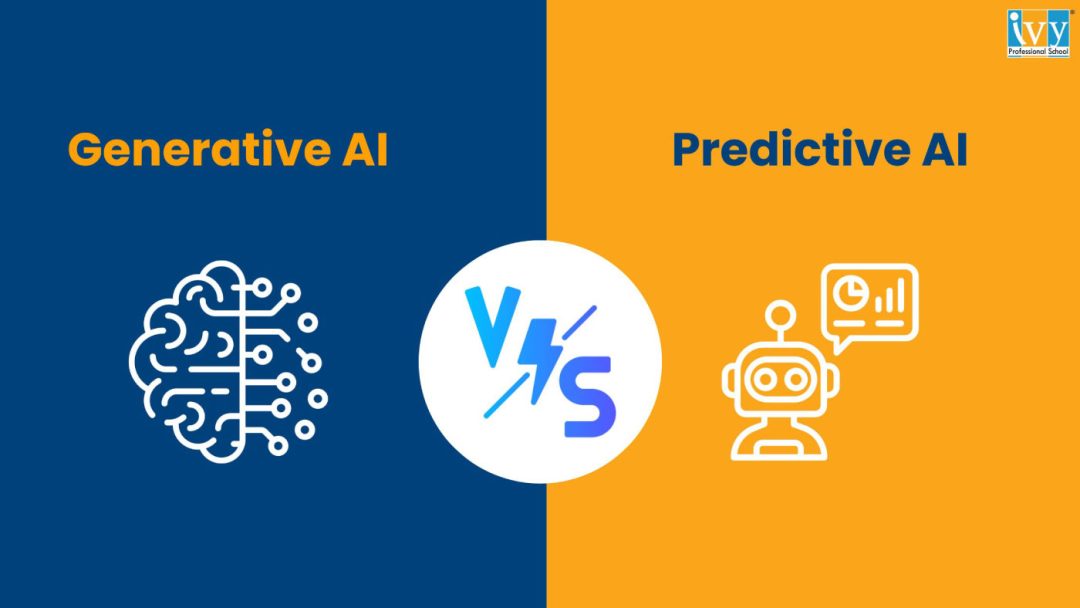
Generative AI and predictive AI are two branches of artificial intelligence that are on the rise and reshaping the world.
They both use machine learning algorithms to learn from large datasets and improve over time. And they both automate repetitive, time-consuming tasks and help us increase efficiency.
But they are completely different from each other. And the main difference is that generative AI creates new and original content, while predictive AI forecasts future events based on historical data.
In this post, we will explain the difference between generative AI and predictive AI in detail. You will learn how they work, what they are used for, what limitations they have, and what career opportunities they provide.
Generative AI creates unique content like text, code, images, music, video, etc. This content can be so creative and original that it seems to be created by humans. This makes this AI technology capable of imagination and creative thinking.
Large language models like ChatGPT are powered by generative AI. You already know how this generative AI tool surprised the world in 2022. They can generate human-like text that can be LinkedIn posts, poems, short stories, or emails. You can ask any question, and the tool will give you personalized and accurate answers.
On the other hand, predictive AI predicts future events, trends, or outcomes based on historical data. It can be used in places like forecasting, disease diagnosis, recommendation systems, etc., where the goal is to know what may happen in the future. Thus, this AI technology helps businesses make smart decisions and gain a competitive edge.
For instance, Amazon Forecast is powered by predictive AI. It’s a time-series forecasting service that uses machine learning algorithms to analyze historical data and generate accurate forecasts for businesses. It can be used for demand forecasting, workforce planning, inventory forecasting, etc.
Let’s understand the difference between generative AI and predictive AI based on their inputs, outputs, technology, applications, limitations, etc.
Generative AI models are trained on big datasets of content like books, photographs, or movie clips. They learn the patterns, structures, and relationships within this data. This lets the model generate something that’s never been created before, which could be an image, poem, or music.
Predictive AI, on the other hand, is fed with historical or real-time data like sales figures, stock prices, weather details, or machine readings. The model understands the trend and pattern in the data to predict future events like sales projections, customer churn rates, etc.
Generative AI uses neural networks like Generative Adversarial Networks (GANs) or Variational Autoencoders (VAEs) to generate new content. They also use transformer models to generate meaningful text by predicting the next word in a sentence.
Predictive AI uses regression models to predict continuous outcomes based on relationships between variables. They use decision trees and random forests for classification and regression tasks. They also use neural networks to learn and recognize patterns in data.
There are numerous generative AI applications. For example, it powers AI chatbots, which are used by businesses for customer support and sales. It also powers apps like Dall-E that can generate realistic images, models like GPT-4 that can generate marketing content for businesses, or tools like OpenAI’s Codex, which can generate codes for programmers.
Predictive AI can be used by organizations for weather forecasting, stock market predictions, customer behavior forecasting, risk management, etc. It helps businesses make data-driven decisions to increase efficiency, identify opportunities, and grow.
Generative AI can produce biased or inaccurate content. This happens mostly when the training data is biased, low-quality, or incomplete. It can also generate errors because it doesn’t have common sense. Besides, it can’t perform truly creative tasks and come up with totally novel ideas. Also, this technology can be misused to create deepfakes or spread misinformation.
In the case of predictive AI, accuracy also depends on the quality of the training data. Inaccurate, incomplete, or biased data can result in flawed and misleading insights. Besides, predictive AI neglects the fact that there could be unexpected and unforeseen events, which further limits its accuracy.
The good thing is that as technology gets more advanced, both these branches of AI are going to be more accurate, relevant, and safe for the world.
Both generative AI and predictive AI are hot careers with tons of opportunities for tech-savvy people like you.
In generative AI, you can be a generative AI engineer who designs, develops, and implements generative models for real-world applications like chatbots and content generation. Other career options like machine learning engineer, AI research scientist, creative AI specialist, or AI ethics specialist are also good ones.
To do this, you will need to learn machine learning frameworks like TensorFlow, PyTorch, and Keras. You also need to learn neural networks, deep learning, and specific models like GANs, VAEs, and transformers. You can take generative AI courses to learn these skills.
On the other hand, learning predictive AI can help you become a data scientist who can build predictive models and figure out future trends and patterns, such as customer behavior, market trends, and business outcomes. Other career options are ML engineer, business intelligence analyst, predictive modeling, etc.
To learn predictive modeling, you need a strong foundation in statistics, mathematics, and probability. You also have to learn machine learning techniques like regression, classification, clustering, time series analysis, etc., and programming languages such as Python, R, and SQL.
Now you understand the difference between generative AI and predictive AI. So, if you want to learn generative AI and land high-paying jobs, you can join Ivy Pro’s IIT-certified GenAI course.
This is an 18-week live online program where you will be mentored by IIT Guwahati professors and experts from companies like Amazon, Google, and Microsoft.
You will learn industry-relevant skills like machine learning, deep learning, large language models, LangChain, RAG, Transformer, etc. You will also work on real-world projects to gain practical experience and build a solid portfolio.
Now is the time to transform your career. Visit the GenAI course page to learn more about it.

Prateek Agrawal is the founder and director of Ivy Professional School. He is ranked among the top 20 analytics and data science academicians in India. With over 16 years of experience in consulting and analytics, Prateek has advised more than 50 leading companies worldwide and taught over 7,000 students from top universities like IIT Kharagpur, IIM Kolkata, IIT Delhi, and others.
Team Aug 25, 2024 No Comments

Business analysts analyze data and make smart strategies to help organizations improve their systems, processes, products, or services. This way, organizations can identify opportunities, increase efficiency, mitigate risks, and maximize profits.
So, you won’t be surprised if we tell you that there’s a huge need for skilled business analysts in the job market. Just see the numbers, the global business analytics market is expected to grow at a CAGR of 9.63% and reach a valuation of $176.14 billion by 2031. The rising demand is clearly evident.
If you want to know more about what business analysts do, you are in the right place. We have discussed everything from the salary of business analysts to the best courses for becoming one.
Business analysts understand how a business works, identify what can be improved, and come up with effective solutions. But to do that, they must first understand what the organization needs, what problems it’s facing, and what goals it has.
Then comes the analysis part. Business analysts gather and analyze large sets of data using industry-relevant tools to find useful insights. This helps them propose an effective solution, which can be anything like software implementation, streamlined processes, organizational changes, improvement in products or services, etc.
They have to communicate their solutions and strategies to clients or stakeholders. This way, they help organizations reduce costs, increase their efficiency, and achieve their goals. They also help organizations understand the impact of changes in the market and deal with them effectively.
No wonder why business analytics has become an essential need for organizations to stay competitive in this rapidly changing market. And that brings us to the next and most-asked question…
Business analysts earn an average salary of ₹7,22,500 per year in India, according to a Glassdoor report. Different factors like location, years of experience, company size, etc., can influence this number.
Entry-level business analysts with not much work experience usually earn the lowest salary. But it keeps increasing as you gain more experience and expertise.
For instance, senior business analysts with 2-4 years of experience can earn between ₹10 lakhs to ₹20 lakhs. And principal business analysts with over 8 years of experience can earn between ₹14 lakhs to ₹27 lakhs.
So, it’s clear that business analytics is a promising career path with good earning potential. Now, let’s look at what skills you would need to be one.
Just having a degree isn’t enough. You need some set of skills to effectively do your job as a business analyst. We have listed some of the technical skills here:
You will also need soft skills like communication and negotiation to communicate your findings and deal with clients and stakeholders. Next, problem-solving and analytical thinking skills are also necessary for handling complex business problems better.
So, if you can learn the above skills, you will become a valuable asset for an organization.
You understood what a business analyst does and what skills they need. Now, it’s the tools and software that help them perform their job. Although there is no specific standard tool, here are some of the common ones:
The specific software you will use mostly depends on your company and the type of work you do. However, the above tools are the most popular ones, so being familiar with them can help you get a head start in a business analyst career.
You will find many certification courses for business analysts on the internet. If you want to master the in-demand skills and land high-paying jobs, you can join Ivy Professional School’s Business Analyst Certification course.
This is a live online program, so you can learn industry-relevant skills and clear your doubts by interacting with instructors from your home. The course will teach you data analytics, visualization, predictive modeling, machine learning, etc, using tools like Excel, SQL, Python, R, and Tableau.
You will also work on industry projects to gain hands-on experience and build your portfolio. This will help you showcase your expertise to employers. Besides, Ivy Pro provides you with placement support like resume building and interview preparation to help you land your dream job.
Now you know what business analysts do, how much they earn, and what skills they must have. Business analysts are basically problem solvers who first evaluate how an organization works and then find ways to make it better. If you like to play with numbers and solve business problems, a career in business analysis might be a great choice for you. If that’s the case, join a comprehensive course, learn the skills, gain experience, get certified, and start your journey.

Eeshani Agrawal holds an MS in Civil Engineering from Texas A&M University (USA) and has over 16 years of experience in data visualization, storytelling, and analytics. She has consulted for top engineering, manufacturing, and consulting firms worldwide and has coached over 9,000 professionals and students from leading institutions like IITs, IIMs, and ISI.
Team Aug 23, 2024 No Comments
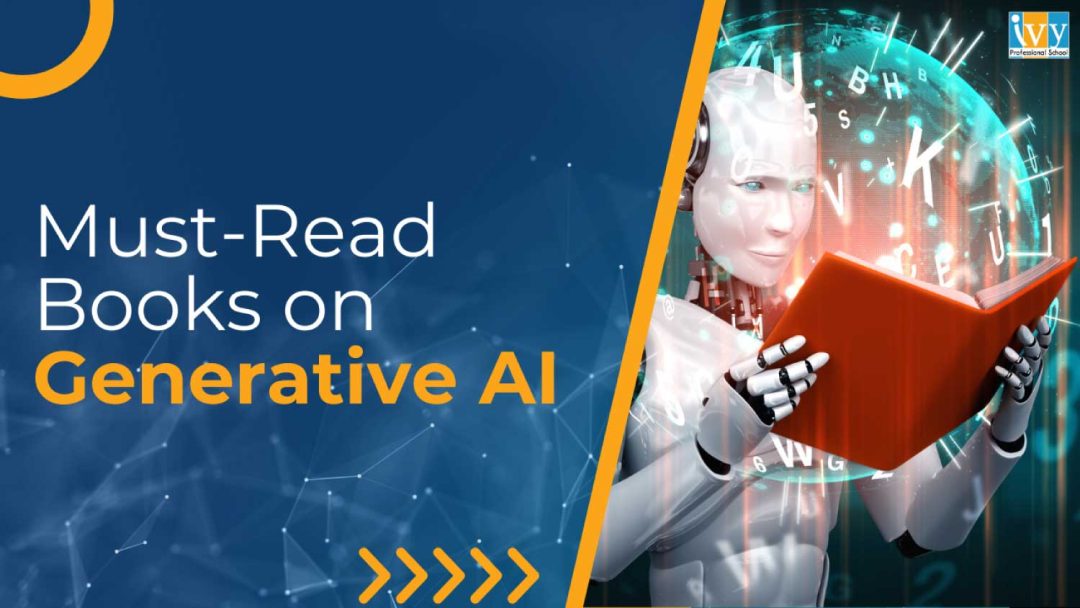
Generative AI is the future. This artificial intelligence technology has surprised the whole world through its ability to generate original text, code, images, audio, and video. If you want to master this technology, generative AI books can be a good starting point.
Certain books are authored by experts and help you understand complex generative AI concepts even if you don’t have a strong technical background. They help you learn different applications, explore the latest trends, and solve real-world problems using the technology.
In this blog post, we have listed some of the best generative AI books. You can read them either in paperback format or directly from Amazon Kindle.
Ivy Pro’s GenAI course with E&ICT Academy, IIT Guwahati, is one of the top-rated courses in India. In this 18-week program, you will be mentored by IIT professors and professionals from companies like Amazon, Google, and Microsoft.
You will learn industry-relevant skills like machine learning, deep learning, large language models, LangChain, RAG, Transformer, etc. You will also work on interesting projects to gain hands-on experience and build your portfolio.
And with Ivy Pro’s placement assistance, you will become a job-ready candidate for big MNCs. Visit the GenAI course page to learn more about this live online program.
Whether you are a beginner or a professional, these books will help you learn generative AI from scratch. Let’s see what we have got…
Author: David Foster
Print length: 330 pages
Originally published in: July 2019
Get the book: Generative Deep Learning
This book helps you understand how generative AI can create art, compose music, and write like a human. You will understand the basics of deep learning and then explore advanced algorithms.
This book is perfect for anyone who wants to get their hands dirty. Foster doesn’t just explain the theory. He provides useful tips and tricks to make your own effective AI models that learn faster.
You will learn about changing facial expressions with variational autoencoders, music generation with MuseGAN, image generation models with ProGAN and StyleGAN, models for text generation, etc.
Author: Chris Fregly, Antje Barth, and Shelbee Eigenbrode
Print length: 312 pages
Originally published in: November 2023
Get the book: Generative AI on AWS
This book gives you a clear roadmap to build generative AI applications, from case definition and model selection to model optimization and deployment.
Whether you are a data scientist, business analyst, app developer, or ML practitioner, this book will help you use the power of generative AI to solve business problems.
You will learn about different types of models, including large language models (LLMs) like ChatGPT and image generators like Stable Diffusion. The book also covers libraries like LangChain and ReAct.
Author: Joseph Babcock, Raghav Bali
Print length: 488 pages
Originally published in: April 2021
Get the book: Generative AI with Python and TensorFlow 2
This book will take you through the evolution of generative models before introducing the advanced techniques used today.
You will implement models on TensorFlow, use LSTM models and MuseGAN to compose music, use pix2pix GAN to create deepfakes, and explore text-generation models using BERT, GPT-2, etc.
The generative AI book is best for Python programmers who want to create functional apps with this technology. You will need a basic understanding of maths and statistics to understand the book better.
Author: Rajeev Kapur
Print length: 208 pages
Originally published in: September 2023
Get the book: AI Made Simple
This generative AI book is best for beginners who want to learn the foundations. The author explains this revolutionary technology in plain language with examples so that you can easily grasp even complex concepts.
You will learn what generative AI is, how it was developed, what the applications of generative AI are, how it’s changing our world, and what disruption opportunities it provides. You will also understand the limitations and ethical concerns of this technology.
Author: James Phoenix, Mike Taylor
Print length: 422 pages
Originally published in: May 2024
Get the book: Prompt Engineering for Generative AI
This book will help you learn the basics of generative AI and how you can use these models. You will learn how to get the most out of LLMs like ChatGPT and diffusion models like Stable Diffusion.
After reading this book, you can craft prompts that get the AI to generate reliable, high-quality results for tasks like writing, image creation, and even coding.
The book has received 4.4 ratings out of 5 on Amazon. Many readers who have reviewed it say that it is a comprehensive guide with practical insights.
Author: Ben Auffarth
Print length: 362 pages
Originally published in: December 2023
Get the book: Generative AI with LangChain
This generative AI book helps you understand the depths of LLMs like ChatGPT and Bard, including their capabilities and limitations.
It first explains the fundamentals and industry trends before going to advanced topics like creating LLM apps like chatbots with LangChain. You will learn essential techniques like prompt engineering, fine-tuning, and deploying your models securely.
The book is perfect for developers, researchers, and AI enthusiasts who want to master LLMs. Beginner as well as professional developers can read it, but you will require a basic knowledge of Python and machine learning.
Author: Ian Goodfellow, Yoshua Bengi, Aaron Courville
Print length: 800 pages
Originally published in: November 2016
Get the book: Deep Learning
This is one of the best books for deep learning. Written by three industry experts, it covers conceptual and mathematical parts as well as research and practical applications. For instance, it explores topics like linear algebra, probability theory, numerical computation, machine learning, etc.
The book is perfect for aspiring students and software engineers who want to master deep learning and related technologies. Over 2,150 people have given this 4.6-star rating out of 5, saying that the book is detailed and elaborate. Some even say that this is the masterpiece of deep learning.
Learning AI is a continuous process. The above best generative AI books are great resources for learning the ins and outs of this technology. They not only introduce you to the latest trends but also help you understand the possibilities in the coming future. So, keep reading one book at a time, let them inspire your creativity, and solve real-world problems using generative AI.
Next Read: 5 Best Generative AI Courses to Master AI
Team Aug 19, 2024 No Comments
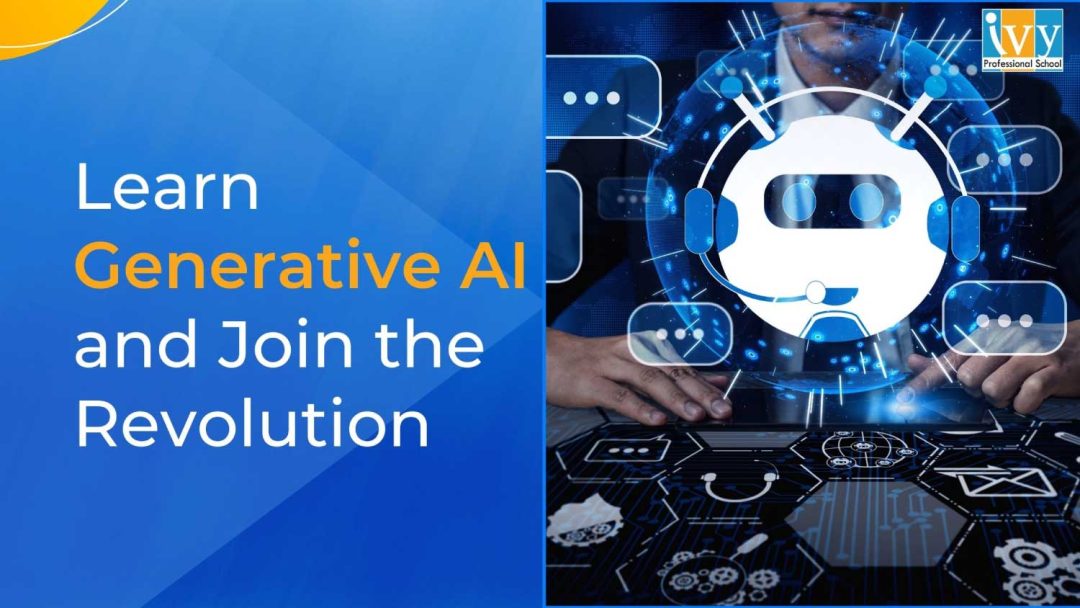
A generative AI course is a smart investment in your future. It can help you stay updated in this rapidly changing world and get ahead of other job candidates and employees.
A good course is your way to gain a deeper understanding of how this AI technology works and learn the latest skills that companies are seeking.
In this post, we have listed some of the best generative AI courses in India. While some are good for beginners, others are more advanced. So go through the course pages carefully to find out which suits you best.
But first, let’s understand…
Generative AI is a field of artificial intelligence that makes machines capable of producing new and original content like text, graphics, audio, video, etc. And this technology is changing everything from how businesses work to how we live.
A report by Bloomberg Intelligence predicts that the worldwide generative AI market can grow from $40 billion in 2022 to $1.3 trillion by 2032. This astounding growth will explode the demand for skilled generative AI engineers. So it goes without saying that learning about it now will help you prepare for the future.
But what can you expect from a career in generative AI? Well, everything from career growth, a good salary, and job security to an opportunity to be a part of this AI revolution. For instance, a generative AI engineer currently earns an average salary of ₹8,70,000 per year in India.
Overall, it’s a promising career path. Now, let’s find some good courses…
There are many courses available online. Some are the best, some are just average. In the following sections, you will find the best generative AI certification courses in 2024.
This is an 18-week, live online course by Ivy Professional School and E&ICT Academy, IIT Guwahati. Ivy Pro has already helped over 29,500 learners upskill, gain practical experience, and secure placement in top companies.
The course teaches you advanced generative AI skills like machine learning, deep learning, large language models, LangChain, RAG, Transformer, etc. You will learn to build your own applications that solve real-world problems using generative AI technology.
Here are the top features of this course:
So, if you want to become a generative AI expert and land your dream job in big MNCs, this course would be the perfect choice.

This is a free, introductory online course by Google Cloud that teaches you the basics of generative AI.
It explains what it is, how it works, and how it’s different from other types of AI. You will also learn how to use Google’s tools to build your own generative AI applications.
Here are the top features of this generative AI course:
This course could be a great starting point if you are curious about generative AI and want to learn the fundamentals from Google experts.
This is another beginner-level generative AI course offered by Vanderbilt University on Coursera. It teaches you how to write prompts to effectively use large language models like ChatGPT.
You will also learn what large language models are, how they work, and how to use them for various tasks, whether it’s your job, business, or personal life.
Here are the top features of the course:
The course is perfect if you are just starting your generative AI career, as it does not require any prior knowledge of large language models or prompt engineering.
This is a 16-week online course offered by Simplilearn and Purdue University. It covers topics such as Python basics, prompt engineering, large language models, image generation, AI governance, etc. You will also learn to use generative AI tools like ChatGPT, Azure AI Studio, Hugging Face, etc.
Here are the top features of this generative AI course:
The course is perfect for someone who has a minimum of 2 years of professional experience and a basic understanding of programming and mathematics.
This is a 3-course series offered by IBM on Coursera that can help you accelerate your software development career. This one-month course teaches you various generative AI tools and techniques to generate codes and snippets.
Here are the top features of the course:
You will need software engineering experience to get the most out of this program. The course is perfect for aspiring or professional web developers, mobile app developers, full-stack developers, DevOps professionals, etc.
Learning AI can boost your career. Go through the above generative AI courses to see which suits your needs the best. If you are a student or a working professional looking to master the ins and outs of this latest technology, you can join Ivy Professional School’s IIT-certified GenAI course. This will not only help you learn advanced AI skills from scratch but also build a solid AI portfolio and secure placement. After all, AI is the future.

Eeshani Agrawal holds an MS in Civil Engineering from Texas A&M University (USA) and has over 16 years of experience in data visualization, storytelling, and analytics. She has consulted for top engineering, manufacturing, and consulting firms worldwide and has coached over 9,000 professionals and students from leading institutions like IITs, IIMs, and ISI.
Team Aug 08, 2024 No Comments

Data engineers are the professionals who build the systems and infrastructure that help organizations collect, store, and analyze data.
Since data-driven decision-making has become a necessity, the demand for data engineers has been growing rapidly. After all, the power of data helps companies gain more customers and boost revenue.
So, if you are a skilled data engineer, you can expect an amazing career with endless opportunities to learn and grow. In this post, we will discuss more about what data engineers do, how much they earn, and how to become a data engineer.
Data engineers are like architects of the data world. They build systems that collect data smoothly from its source, like websites, apps, or sensors, and store it in places like databases and data warehouses.
It’s the data engineers who help data scientists and analysts to easily access the data they need. So, they have to make sure that the data is accurate, consistent, and reliable for analysis.
They also have to ensure that systems can handle massive amounts of data and grow as the business grows. And they have to make this process efficient by optimizing the systems for speed and performance.
Various industries like technology, finance, healthcare, and e-commerce rely on skilled data engineers to build and maintain their data infrastructure. Here are some specific tasks that data engineers perform:
Now, let’s take a look at why data engineering is such a great career.
The high demand and the specialized skills of data engineers translate into competitive salaries. For instance, data engineers in India earn an average salary of ₹8,62,000 per year.
But that’s just the average figure. Factors like years of experience, location, and company size affect the salary. For example, Glassdoor reports senior data engineers with 2-4 years of experience earn salaries between ₹ 12 lakhs to ₹ 25 lakhs per year. Whereas lead data engineers with 5-7 years of experience earn salaries between ₹ 18 lakhs to ₹ 32 lakhs per year.
Similarly, the average annual salary of data engineers in Bangalore is ₹11 lakhs, whereas in Gurgaon, it is 11.9 lakhs, and in Mumbai, it is ₹9.6 lakhs. Larger companies with a heavy reliance on data (like tech, finance, and e-commerce) often pay more than smaller companies or those in less data-centric sectors.
If you are considering a career in data engineering, it’s a good idea to research the salary trends in your specific location and industry. Now that we know the perks of being a data engineer let’s understand how to become one.
Here are 6 essential steps to becoming a cloud data engineer:
Although it’s not necessary, if you have a bachelor’s degree in computer science, engineering, math, or a business-related field, it can really help. It will give you a strong foundation and help you understand the basics of programming, databases, algorithms, etc.
But if you don’t have a formal degree, you can join certification courses. This is, in fact, a great way to launch your data career. Courses not only help you learn industry-relevant skills but also help you gain hands-on experience, stay updated with industry trends, and be a credible data engineer.
And if you join top-rated courses, like Ivy Professional School’s IIT-certified data engineering course, you will be mentored by IIT professors, receive career guidance, and get lifetime placement support.
A data engineer needs a set of technical skills to do their tasks effectively. Here are some of them:
Read this post to learn about the latest data engineering syllabus. However, try to stay updated with new trends and technologies. Things change fast, so you must keep learning new skills even after you become a skilled data engineer.
Now, just technical skills aren’t enough to become a data engineer. You also need to sharpen your soft skills to do your job effectively. Here are some of the essential ones:
A good portfolio is a powerful tool that can help you land your dream job. It basically shows the projects you have worked on and how you have applied your skills to solve real problems.
The portfolio helps you show some of your unique work and stand out from other job applicants. Since employers get a direct example of what you can do, you become trustable.
Here are some tips to build your portfolio:
The key to building a solid portfolio is practicing good projects. That’s why Ivy Pro School helps learners work on industry and capstone projects in the data engineering course with E&ICT Academy, IIT Guwahati. It not only helps in the portfolio, but learners also gain practical experience and confidence to solve real business problems.
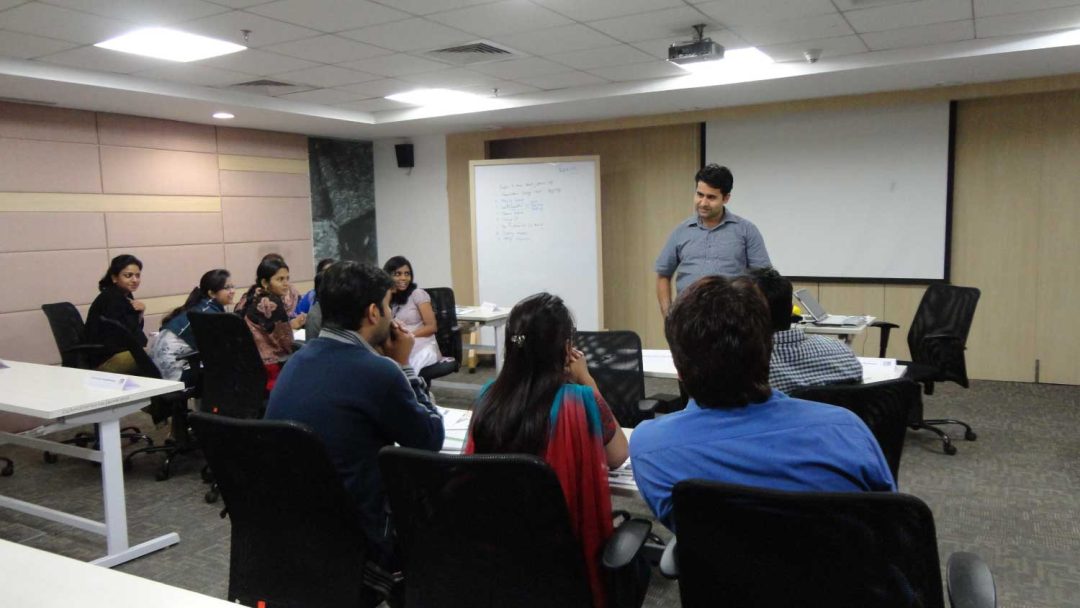
Now, you are ready to apply for jobs. But first, create a good resume that showcases your technical skills, experience, and projects. You can go through the company’s job description, understand what skills they need, and tailor your resume and cover letter accordingly.
You can go to online job portals like LinkedIn, Indeed, Glassdoor, and company career pages. If there aren’t any open positions at the moment, you can set up job alerts for data engineering roles.
Don’t stop networking. Connect with professionals in your field on LinkedIn. You can attend industry events, webinars, and meetups. A good network can lead you to surprising opportunities.
You also need to prepare for interviews. Just revise what you have learned about data structures, algorithms, and system design. Research common data engineering interview questions and prepare good answers. Also, go through your projects and get ready to discuss your problem-solving approaches.
You can’t avoid this step if you want to become a good data engineer. Like most other fields, data engineering is rapidly changing, so you must continuously learn and update yourself.
Stay up-to-date with the latest tools, technologies, and trends by reading industry blogs, attending webinars, and taking online courses.
You can follow data engineering experts on LinkedIn and spend just 20 minutes every day on the platform. You will be surprised by the quality of knowledge shared daily on the platform.
Now you know how to become a data engineer. It’s a process of learning skills and practicing them consistently. And it’s all worth it. The demand for data engineers in India is only going to increase in the years to come, so now is a great time to get started.
You can join Ivy Professional School’s IIT-certified data engineering course. In this live online course, you will learn in-demand skills, get coached by IIT professors, work on real-world projects, and become an ideal job candidate in 45 weeks. To learn more about it, visit the course page.
Team Aug 02, 2024 No Comments
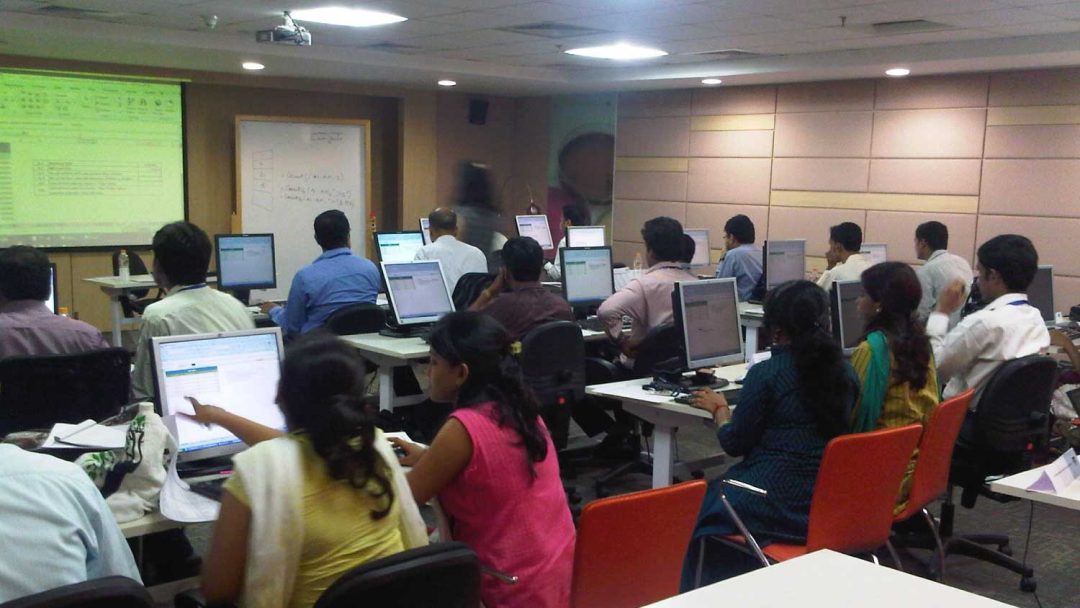
You will find numerous data science courses in Kolkata. Some are good, some are just average, and some are exceptionally good.
Choosing the right course is a crucial step. You have to consider factors like course syllabus, faculty expertise, projects and case studies, placement support, etc.
This blog post will help you find the perfect data science institutes and training programs. It lists some of the exceptional data science courses in Kolkata that can help you launch your data career, even if you are a beginner.
With these courses, you can learn in-demand skills, become a certified data scientist, and land high-paying jobs in MNCs. But let’s first understand…
You have to admit data science is a hot career. Currently, the average salary of a data scientist in India is an amazing ₹12,85,000 per year. And if you go to cities like Bangalore, Hyderabad, or Gurgaon, the average salary is around ₹14,00,000 per year. That’s huge, right?
As of June 2024, there are more than 17,000 data science job openings in India at top companies like Google, Microsoft, and Accenture. And things are only getting better with time. The global data science market size is growing with a CAGR of 24.7% and is projected to grow from $133.12 billion in 2024 to $776.86 billion by 2032.
So, if you have the skills and expertise, you will have good pay, job security, and a fulfilling career. You will create a real positive impact by helping businesses and organizations make smart, data-driven decisions. The following data science courses in Kolkata will help you achieve this.
Ivy Pro’s executive data science course is one of the best training programs in Kolkata. Made in partnership with E&ICT Academy, IIT Guwahati, this course helps you become an IIT-certified data scientist.
The live online training lets you join classes from anywhere, interact with instructors, and resolve your doubts instantly. Ivy also offers in-person classes in Kolkata. You will be coached by IIT Guwahati professors and experts from companies like Amazon, Google, and Microsoft.
The course is designed by industry experts and covers essential tools like Excel, Python, SQL, Power BI, Keras, Tensorflow, OpenCV, and Tableau. You will learn in-demand skills like data wrangling, analytics, visualization, machine learning, deep learning, and GenAI.
The course lets you go beyond theoretical knowledge. With 10+ projects, 40+ case studies, and 50+ assignments., you implement your knowledge, create an impressive portfolio, and gain the confidence to solve real business problems.
What’s more, Ivy Professional School helps you develop your soft skills, build your resume, prepare for interviews, and make a social presence. After 45 weeks of training, you become an ideal job candidate for high-paying roles in major tech companies.

Coursera’s IBM Data Science Professional Certificate course series covers skills like data analysis, data visualization, statistical analysis, predictive modeling, machine learning, generative AI, etc.
You will also learn to work with the latest data science tools and libraries like Python, SQL, Pandas, NumPy, Scikit-learn, and Matplotlib. You will be taught by industry experts from IBM who have received high ratings for the quality of their teaching style.
Apart from an updated curriculum, the course covers real-world projects to help learners get practical experience and build a portfolio. It’s an online course that you can easily attend from your home.
You can complete this data science course in Kolkata at your own pace. With 10 hours a week, you can finish it within 6 months. And after completing the course, you will earn a certificate from IBM to boost your credibility as a data scientist.
Simplilearn’s data science course, made in collaboration with IBM, is a suitable option for both freshers and professionals. You get live sessions from industry experts as well as masterclasses from IBM professionals.
This is an online course that you can access from anywhere. It explores basic topics like programming essentials before moving to advanced ones like Python, Tableau, Hadoop, Spark, machine learning, generative AI, etc. You learn useful skills like database management, data analysis, data visualization, large language models, conversational AI, etc.
You will receive a valuable certificate from both Simplilearn and IBM after completing the course. Besides, Simplilearn’s job assist program provides you with career mentoring and helps you land your dream job.
Udemy’s Data Science Course offers comprehensive training covering math, statistics, Python, Tableau, machine learning, deep learning, etc. It’s again an online training that you can access from anywhere in Kolkata.
The course has 31 hours of video, 93 articles, and 541 downloadable resources. Besides, the 137 coding exercises help you apply everything you have learned to real-life situations and gain a deeper understanding.
The program doesn’t require prior experience as it starts from the basics. So, it’s perfect for students who want to launch their data careers. You will learn everything you need to become a data scientist and make your resume strong.
This data science course in Kolkata has got 4.6/5 ratings from over 140,000 learners on Udemy. So, it’s a good one.
Massachusetts Institute of Technology’s Applied Data Science Program is a reputed course that is taught by highly experienced MIT faculty. This is a 12-week live online training, so you can attend it from anywhere in Kolkata and interact with instructors.
You will learn how to leverage AI to make data-driven decisions. The course covers in-depth topics like machine learning, deep learning, recommendation systems, ChatGPT, applied data science with Python, generative AI, etc. You learn tools like Python, NumPy, Keras, TensorFlow, etc.
You also work on 6 projects under the guidance of industry experts to gain hands-on experience and solve business problems. You also get live mentorship from data science practitioners on weekends to gain more clarity.
Finally, you will earn a professional certificate from MIT upon completion of the course.
Ivy Professional School stands out as the best data science training institute in Kolkata for several reasons. Since 2008, Ivy Pro has been a top-ranking data science, analytics, and AI education provider. This success is due to its unmatched course quality and smart teaching approach.
Ivy Pro has the top 1% faculty, with instructors who bring decades of industry experience and know how to make learning engaging and memorable. Besides, learners also get mentored by experts from prestigious institutions like IIT and companies like Amazon, Google, and Microsoft.
The course curriculum is designed to meet industry standards and includes practical training on essential tools like Python, SQL, and Tableau. Students work on real-world projects, gaining hands-on experience to solve real business problems.
The institute also collaborates with prestigious organizations like IIT Guwahati, IBM, and NASSCOM to ensure its programs are up-to-date and effective. No wonder that Fortune 500 companies like Tata Steel, Accenture, ITC, Cognizant, and Capgemini trust Ivy Pro’s training and actively recruit Ivy Pro graduates.
In the last 16 years, Ivy Professional School has helped over 29,500 learners get placed in more than 400 organizations. If you want to become the next success story, you can join Ivy Pro’s IIT-certified data science course and achieve your career goals.

Becoming a data science expert isn’t that easy. You will need a comprehensive syllabus and experienced mentors. We have listed some of the best data science courses in Kolkata. Go through their course pages carefully to decide which one best meets your requirements. After all, choosing the right course can significantly impact your career, giving you the skills to become a competitive job candidate.

Prateek Agrawal is the founder and director of Ivy Professional School. He is ranked among the top 20 analytics and data science academicians in India. With over 16 years of experience in consulting and analytics, Prateek has advised more than 50 leading companies worldwide and taught over 7,000 students from top universities like IIT Kharagpur, IIM Kolkata, IIT Delhi, and others.
Team Jun 10, 2024 No Comments

Artificial intelligence is here. And it’s transforming how we live and work. But what’s the future of AI? How will AI change the world?
Currently, we are surrounded by this technology. AI is powering voice assistants like Siri and Alexa. It recommends TV shows that you love on Netflix. It also helps you find the quickest route home on Google Maps.
When it comes to businesses, AI is helping automate tasks, streamline processes, increase productivity, boost sales and revenue, cut costs, and improve customer relationships.
AI gives machines the ability to think and act like humans. With each passing day, it’s becoming more capable of doing smart things. That’s why the global AI market is expected to grow and reach USD 1.81 trillion by 2030. That’s really huge!
In this blog post, we will explore the future of AI and see how it’s transforming different industries. This will help you prepare and be relevant in the coming days.
From Alan Turing imagining machines could think and John McCarthy using the term “artificial intelligence” for the first in the 1950s, AI has come a long way.
Things were simple back then – programs like Arthur Samuel’s checkers-playing computer in 1952. But with time, the technology became more advanced.
Like in the 1990s, IBM’s Deep Blue supercomputer shocked the world by defeating chess grandmaster Garry Kasparov. Around the same time, AI-powered speech recognition and natural language processing started to emerge. This was the foundation on which today’s voice assistants and chatbots stand.
Then, in the 2010s, deep learning came into the picture. This is a type of AI that’s inspired by the human brain, and it’s incredibly good at finding patterns in huge amounts of data. This has supercharged AI, making it smarter and more capable than ever before.
Now, AI is so powerful that it’s writing code (like OpenAI’s Codex), creating images from text prompts (like OpenAI’s Dall-E), and even helping scientists discover new drugs (like DeepMind’s AlphaFold predicting protein structures).
No surprise, the GenAI tool, ChatGPT, broke all the records in 2022 and reached 1 million users in just 5 days. All these are just the beginning – the future of AI is brighter and more exciting.
A PWC study predicts that AI could contribute up to USD 15.7 trillion to the global economy by the end of this decade. Although there are certain advantages and disadvantages to AI, it is certainly going to be more powerful in the future. In the following sections, we will discuss the impact of AI in different industries to understand how AI will change the world.
AI is making a big transformation in the entertainment industry. It’s already used by Netflix and Spotify to make smart, personalized recommendations. In fact, Netflix admits its AI-powered recommendations system is worth USD 1 billion in revenue annually.
In the present times, GenAI tools can be used to write scripts, compose music, and even generate realistic visual arts within seconds.
Tools like OpenAI’s Sora can generate videos from text prompts. That’s something revolutionary. It can help filmmakers generate complex scenes without spending thousands of dollars. We can also expect AI-generated actors who can act and perform stunts just like human actors.
Also, in the future, AI tools can make it easier for anyone to create high-quality content. If you have good judgment and an understanding of art, you may use AI to create your own movies or music from text prompts. So, entertainment will be more personalized.
AI is making education more personalized, engaging, and effective. It can create smart tutoring systems that enhance the classroom experience and learning outcomes.
AI is helping create powerful learning platforms that can analyze how students learn, recommend resources, and provide feedback. For example, Thinkster Math is an AI-powered app that creates more personalized lesson plans for students.
AI can also help with automated grading by evaluating and assigning scores to each student’s exam papers within seconds. This will free up human teachers and help them focus on teaching and mentoring.
In the coming days, AI can enable virtual tutors who will be available around the clock. These teaching assistants will understand students’ strengths and weaknesses, help them clear doubts, and let them study at their own pace. They can also recommend courses and help students make the right career decisions.
AI-powered machines and robots can create a more efficient, productive, and safer workplace. These robots can do all those laborious, repetitive, and risky tasks, freeing up human workers to focus on creative work.
Currently, AI helps in predictive maintenance. This involves analyzing data from sensors to predict when machines might need maintenance. It helps companies fix problems before they cause costly breakdowns and downtimes.
AI also enhances the quality control system. AI-powered vision systems can inspect products with incredible speed and accuracy, catching defects that human inspectors might miss. This can improve product quality and reduce waste.
The global AI in manufacturing market size is expected to be valued at around USD 68.36 billion by 2032, growing at a CAGR of 33.5% from 2023 to 2032.
So in the coming days, we can expect amazing things like automatic running factories. AI can control everything from production schedules to inventory management. This could lead to 24/7 production, faster turnaround times, and significant cost savings.
AI can also help manufacturers generate creative product designs, create hyper-personalized products, and embrace sustainable manufacturing by optimizing energy use and reducing waste.
From diagnosis and treatment to patient care and research, AI can have a significantly positive impact on the healthcare industry.
Currently, AI helps a lot in disease diagnosis. It can analyze medical images like X-rays and scans and spot the smallest of details. This can lead to faster, more accurate diagnoses for diseases like cancer and heart conditions. AI is also helping in drug discovery, personalized treatment, and robot-assisted surgeries.
In the coming days, you can expect virtual health assistants who can answer your health questions, monitor your symptoms, and even schedule appointments with your doctor. Since these assistants can alert us to potential problems before they become serious, they could help us avoid deadly diseases.
AI will also get better at predictive analytics. It can analyze health data to predict who’s at risk for certain diseases. This could potentially save countless lives.
AI is making managing and investing money more easy and effective. It’s helping in fraud detection by analyzing transactions 24/7 to spot suspicious activity.
AI is also helping in algorithmic trading. AI-powered algorithms are making quick trades, analyzing market trends, and executing complex strategies for you even when you don’t know much about trading.
In the coming days, you can expect AI-powered financial advisors who understand your financial goals and create personalized investment portfolios. They can pay your bills, manage your budget, analyze your spending habits and income, and provide unique recommendations.
These assistants can assess risk, predict market trends, and identify potential investment opportunities. This could help more people to take control of their finances and build a better future, even if they have limited financial literacy.
The future of AI is bright. From healthcare to education, AI is changing everything. To stay ahead of the curve, you can start learning GenAI.
Ivy Pro School’s GenAI course is the perfect place to start. Developed in collaboration with E&ICT Academy of IIT Guwahati, the course offers mentorship from top IIT professors as well as experts from Google, Amazon, Microsoft, etc.
This course will teach you the in-demand AI skills, like machine learning, deep learning, Langchain, RAG, Transformers, and LLMs. You will get hands-on experience with 20+ real-world projects, so you can really see AI in action.
The course will also help you polish your resume and practice for interviews so you can land high-paying jobs in this booming field. To learn more about this course, visit Ivy Pro School’s GenAI course page.
Team Jun 07, 2024 No Comments
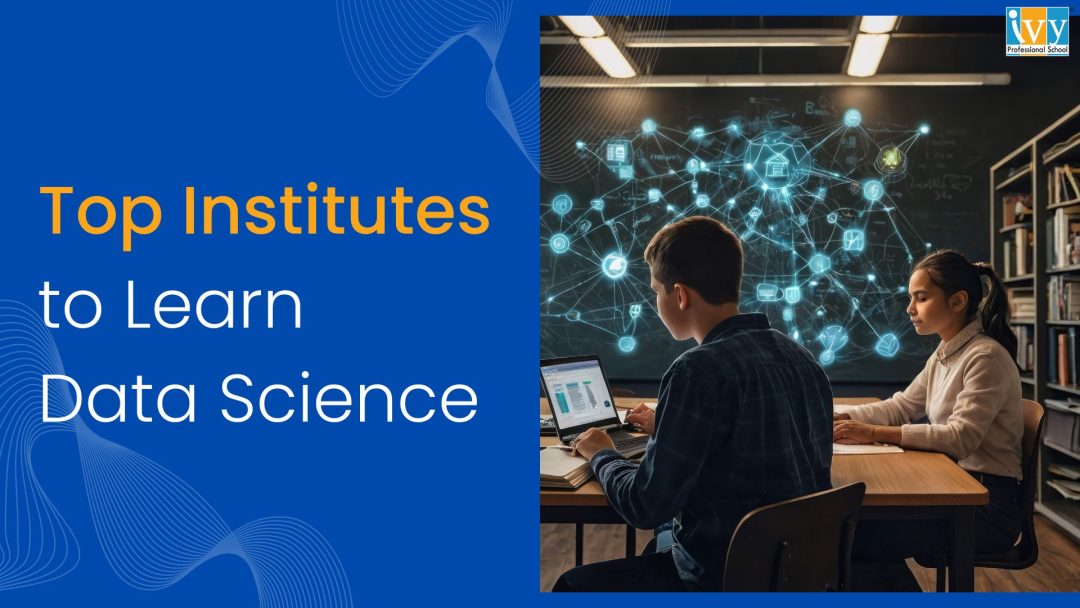
Updated on 9th August, 2024
Want to be a data scientist? Well, it’s a promising career choice with good job opportunities. As a skilled data scientist, you can expect a good salary, job security, work satisfaction, and, ultimately, a chance to create a real impact in the world.
But where do you start? What should you study? Which institute should you join?
Don’t worry, I have got you covered. In this blog post, I am going to share a list of the 5 best institutes for data science in India. We will take a quick look at what makes each one unique so you can choose the best fit for you. But, let’s first see…
Different institutes have different syllabi for their data science courses. Before you choose an institute, you must go through the syllabus to make sure it’s updated and relevant to present industry needs. To give you an example, here is the latest, industry-relevant syllabus followed by Ivy Professional School in its Data Science and AI Certification course.
Here are some of the best data science institutes you can choose for mastering this high-income skill in India:
Ivy Professional School has been a top-ranked data science, data analytics, and AI upskilling provider since 2008. Ivy offers the Executive Data Science and AI Certification course in partnership with E&ICT Academy, IIT Guwahati.
In this program, you get mentored by IIT professors and experts from Amazon, Google, Microsoft, etc. You learn skills like data analytics, visualization, ML, Cloud, AI, GenAI, etc. Apart from learning industry-relevant skills, this 45-week course helps you complete 50+ real-world projects and build an impressive portfolio. The live online classes and live doubt-clearing sessions help you build solid foundations.
You also get placement assistance that helps you with your CV and interviews. All this helps you land high-paying data science jobs in top MNCs. No wonder Ivy is at the top of the list of the best institutes for data science.
IIT Madras is a premier institute known for its excellence in engineering and applied sciences. This institute offers a 4-year Bachelor of Science degree in Data Science and Applications. This is a hybrid course with pre-recorded sessions, weekly online assignments, and in-person quizzes.
This course is good for both students and working professionals, and it will help you learn ML foundations, deep learning, computer vision, large language models, big data, etc. For admission, you have to apply for an in-built qualifier process in which you will be taught for 4 weeks and then asked to qualify for an admission exam.
One of the best institutes to learn data science, IIM Calcutta is a prestigious business school recognized for its flagship MBA programs. It offers the Advanced Programme in Data Sciences (APDS) that helps students learn various tools and techniques for managing, analyzing, and interpreting data. The course covers tools like Tableau, Python, R, SPSS Modeler, etc.
This course is best for working professionals and young managers who want to learn real-world data science skills. This one-year course is conducted in the form of 3-hour online sessions every Sunday. To apply for this course, you must be a working manager with 3+ years of experience or a graduate/postgraduate in any discipline with 50% marks.
Scaler is an ed-tech platform that helps techies upskill with its various courses. It offers a Data Science and Machine Learning program that helps you learn essential skills to succeed in the field. This online program, which runs for 11 to 15 months, focuses on tools like Git, TensorFlow, PySpark, PyTorch, Kafka, Hive, etc.
With 1:1 mentorship, focus on projects and case studies, and career counseling, Scaler ensures you become an expert at solving problems and making smart business decisions. The course is best for freshers and working professionals who have a good understanding of languages like Python or have a degree in maths, engineering, or statistics.
IIT Delhi is one of the best technical institutes in India, and it is recognized for its research and innovation. The institute offers the Advanced Certificate in Data Science and Decision Science course. It focuses on skills related to data handling, analytics, cognitive sciences, various data science tools, etc.
This is a live online program that spans a total of 12 months, providing 150 hours of teaching. The program is best for professionals and leaders who want in-depth knowledge of decision-making with data. Selection for this course is done by reviewing applications and conducting personal interviews.
And there you have it! A glimpse into some of the best institutes for data science out there. Hopefully, this gives you a starting point to explore which program best aligns with your goals, learning style, and budget.
If you are looking for the top data science institute, you can go for Ivy Professional School. Ivy has over 29,000+ alumni who are working in leading roles in 400+ organizations. Apart from expert faculty, Ivy partners with IIT Guwahati, IBM, and NASSCOM to deliver top-notch learning programs.
Whether you are a student or working professional, Ivy can help you learn in-demand data science skills, complete capstone projects, get practical experience, build your portfolio and resume, prepare for interviews, network with alums, and finally get your dream job.
Visit this page to learn more about Ivy’s Data Science and AI course.
Is data science a well-paying job?
Yes, data science is a well-paying job. Skilled data scientists are in high demand, and companies are willing to offer competitive salaries to attract top talent. In India, the average salary of a data scientist is ₹13,00,000 per year. Senior data scientists with 2-4 years of experience can even earn between ₹17 lakhs to ₹30 lakhs per year. That’s a huge number, right?
What’s the best data science institute in India?
There are many great data science institutes in India, but Ivy Pro School stands out for its comprehensive courses, experienced faculty, and strong track record of student success. Since 2008, Ivy Pro has been a top-ranking data science, AI, and data analytics upskilling provider. This institute helps you work on real-world projects, ensures your holistic development, and gives you lifetime placement support so that you have a bright career.
Is data science a stressful job?
It depends on you. If you love playing with numbers and solving real business problems with data, you may not feel that much stress. However, as it happens in most jobs, there can be pressure to meet deadlines and deliver results. Or you may get stuck in an error for days. But if you love the job and like to face challenges, you will enjoy it.
Which city is best for data science in India?
Cities like Bangalore, Hyderabad, Gurgaon, and Mumbai are well-known for their tech industries and offer many opportunities in data science. Kolkata is also emerging as a strong hub for data science education and jobs, especially with top institutes like Ivy Pro School providing quality training.
Is data science still in demand in 2024?
Absolutely! Data science continues to be in high demand in 2024, and it will only get bigger with time. For instance, the global data science market is projected to expand from $133.12 billion in 2024 to $776.86 billion by 2032. So, the need for skilled data scientists is going to increase in the coming days.
Which college has the best placement for data science?
Several colleges in India offer good placements for data science. The above blog post talks about such institutes in detail. Ivy Professional School is one such institute that has helped over 29,500 learners get placed in some of the biggest companies like Honeywell, Samsung, PWC, IBM, HSBC, Amazon, Cognizant, etc. Ivy Pro has strong industry connections and provides lifetime placement assistance, making it easier for students to land jobs.

Eeshani Agrawal holds an MS in Civil Engineering from Texas A&M University (USA) and has over 16 years of experience in data visualization, storytelling, and analytics. She has consulted for top engineering, manufacturing, and consulting firms worldwide and has coached over 9,000 professionals and students from leading institutions like IITs, IIMs, and ISI.
Team May 29, 2024 No Comments
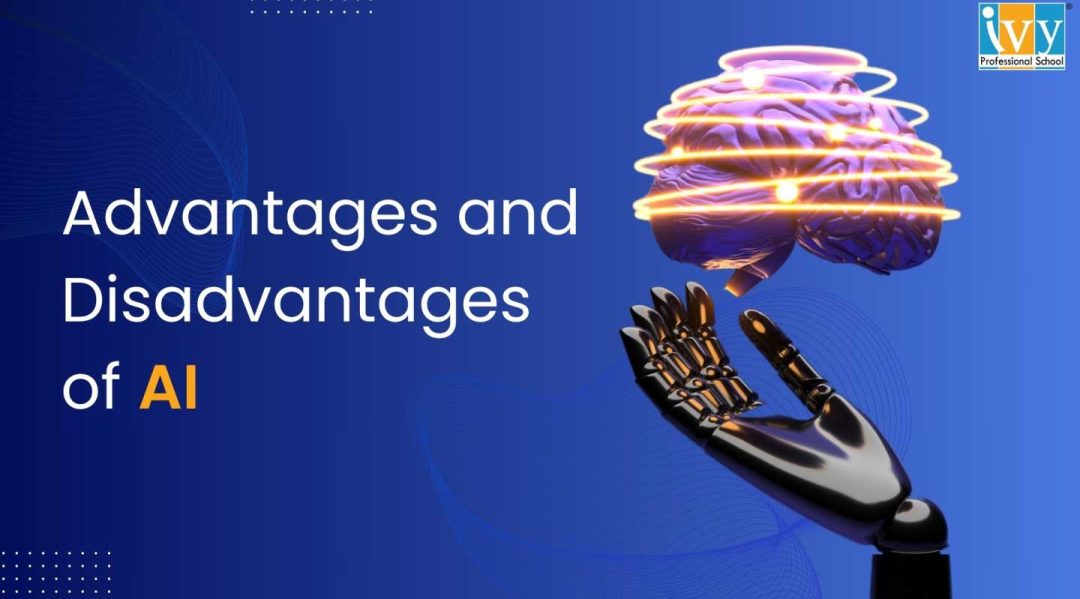
Updated on 21st August, 2024
The artificial intelligence (AI) revolution is here. And it’s transforming our world. From powerful self-driving cars to AI assistants that can talk just like humans, we are witnessing sci-fi concepts turning into reality one by one.
AI enables machines to mimic human behaviors like interacting, learning, reasoning, problem-solving, etc. Machines can now assist humans in tasks like composing music, translating languages, analyzing data, making reports, and so on.
And AI is only going to get more powerful with time. According to a study, the global AI market size is expected to grow at a CAGR of 28.46%, resulting in a market volume of USD 826.70 billion by 2030.
But is AI a force for good, or something we should be worried about? In this blog post, we will discuss the advantages and disadvantages of artificial intelligence. This will help you understand the incredible benefits and the potential risks this rising technology poses.
AI works almost like magic. It is enabling us to do incredibly more in less time. It’s helping organizations streamline processes, increase efficiency, and cut costs. In fact, a McKinsey report says AI could add an astounding $25.6 trillion to the world’s economy. Here are five advantages of AI that show how miraculous this technology is:

This is one of the biggest advantages of AI. It can automate laborious and repetitive tasks like data entry, appointment scheduling, language translation, email filtering, customer support, etc. It frees us humans to focus on more creative and complex work, like solving problems, developing new ideas, and making strategic decisions.
The best examples are customer service chatbots on websites and messenger apps. Powered by AI, they can answer FAQs, troubleshoot issues, collect leads, and even close sales. Since these AI bots can do most of the basic customer service tasks, human sales agents can focus on complex things like closing important deals and building relationships with customers.
Unlike humans, AI can work tirelessly. It doesn’t need sleep, breaks, or vacations. It can operate 24 hours a day, 7 days a week, with full efficiency. This round-the-clock availability helps organizations and individuals increase efficiency, improve productivity, and save significant costs.
Take the example of AI financial trading platforms. These AI systems can tirelessly analyze market trends, execute trades, and manage portfolios 24/7. This way, it can help optimize returns and minimize risk even while human traders are asleep.
Since we are talking about the pros and cons of artificial intelligence, we can’t miss efficiency. Efficiency is another area where AI shines. It performs complex tasks in a fraction of the time it would take a human. For instance, AI-powered image generators can create stunning artwork within seconds. Also, AI algorithms can analyze vast amounts of data in the blink of an eye. This incredible speed not only saves time but also opens up new possibilities for innovation and creativity.
We humans often make mistakes when it comes to doing repetitive tasks. Since AI can handle them easily, it reduces the possible damage. For example, in manufacturing, AI-powered robots can perform assembly line tasks with precision. This reduces defects, improves product quality, and saves a lot of money.
Besides, unlike humans, AI doesn’t get influenced by emotions and biases. It makes decisions based on data and logic. This again eliminates the potential for human error. And it really helps in loan approvals. AI algorithms can assess loan applications based solely on financial data and credit history, eliminating human biases related to race, gender, or age. This leads to fairer lending decisions.
AI makes really helpful assistants. They help us do a lot of tasks like research, content creation, summarizing lectures, etc., to make our lives easier. Generative AI tools like ChatGPT and Gemini are the best examples of this.
But it extends to more complex tasks like exploring Mars or space. Humans can’t survive there currently, but the AI-powered robot can handle the extreme temperatures and gather information for us. This way, we humans can do more leveraging the power of AI.
Anything good has a bad side. AI is no exception. Although AI has incredible applications, it also comes with some disadvantages that limit its ability and performance. Here are four major disadvantages of AI:
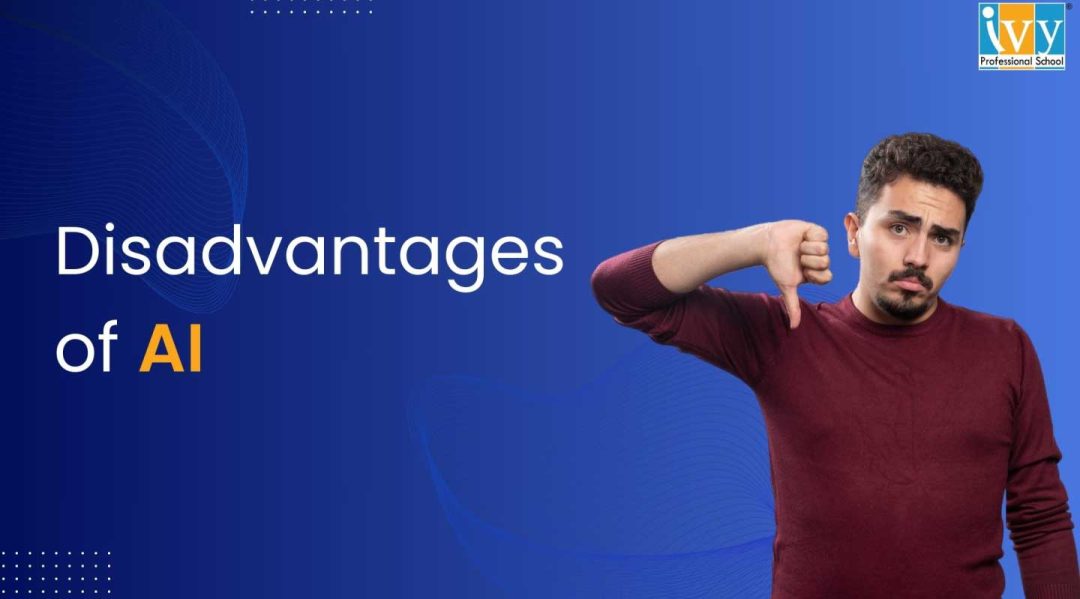
AI doesn’t have emotions and creativity. This is a big drawback in situations where empathy, understanding, and out-of-the-box thinking are required.
A customer service chatbot may give generic responses, but the bot lacks the genuine empathy and understanding that a human would provide. This can leave customers feeling unheard and dissatisfied.
Similarly, AI struggles with creativity. It can generate art, music, or even write stories, but these creations often lack the originality and emotional depth that comes from human imagination.
That means AI can be a good tool for laborious tasks, but it can’t completely replace humans when it comes to tasks that need emotions and creativity.
AI may not always be that accurate. Unlike humans, AI doesn’t have common sense. This can lead to errors in situations that require a deeper understanding of human behavior or cultural context.
Another issue is the phenomenon called AI hallucination. This means AI systems can generate information that seems real but it’s completely fabricated.
Furthermore, the AI’s output depends on the data it’s been trained on. If the training data is biased or incomplete, the AI model can produce inaccurate or misleading results. This can be particularly problematic in areas like healthcare, where AI diagnoses diseases and recommends treatments.
Implementing AI costs a lot of money. The development of AI algorithms often requires specialized expertise and resources. Maintaining and updating AI systems requires ongoing investment.
And as technology evolves rapidly, businesses need to keep their AI tools up-to-date to remain competitive. This means regular software updates, potential hardware upgrades, and training for employees to use and manage these systems effectively.
So, for businesses with limited resources, the high cost of AI implementation can be a major obstacle.
Since AI automates a lot of tasks, it also poses a threat to jobs that were once considered secure. As this technology continues to advance, it will become more capable of performing tasks that require human intelligence, posing more risks to human jobs. A survey found that one in four companies have already replaced workers with ChatGPT.
For instance, in manufacturing, robots are taking over assembly line jobs, while in customer service, chatbots are replacing human representatives. In finance, algorithmic trading replaces human stockbrokers, while in transportation, self-driving cars can potentially replace drivers.
A report by Goldman Sachs predicts that artificial intelligence could automate the equivalent of 300 million full-time jobs. Although this can cause financial hardship for many, it’s an opportunity to learn advanced skills that AI can’t replace. This is a sign for humanity to grow, leverage AI, and make the world a better place.
Now you understand the advantages and disadvantages of artificial intelligence. While this technology has certain disadvantages, the pace at which it is evolving, AI will be way too impactful in the coming days. If you want to be part of this technological revolution, you should invest in your AI education.
Ivy’s GenAI Certification course, developed in partnership with the E&ICT Academy at IIT Guwahati, offers a comprehensive curriculum for mastering AI. Since the course is industry-focused, you will learn the latest GenAI tools and techniques, including machine learning, deep learning, Langchain, RAG, Transformer, and LLM.
You will complete 20+ real-life projects, gain hands-on experience, and build a strong portfolio that showcases your expertise. To learn more about how Ivy’s GenAI course can prepare you for a successful career in AI, visit our GenAI course page.
Is AI good or bad?
AI is neither good nor bad. It’s just a tool. So, what matters is how we use it. We just saw in the above post that AI can automate boring tasks and work round the clock. So, it has huge potential to make our lives better, increase efficiency, and improve businesses. Now, if you want to master AI and boost your career, you can join Ivy Pro’s GenAI course with E&ICT Academy, IIT Guwahati.
What are the advantages and disadvantages of artificial intelligence in education?
AI can make learning more personalized for students by creating customized learning paths and materials. AI assistants can be good virtual tutors who can instantly provide students with explanations and feedback to make learning easier. However, we also have to be careful about the disadvantages of AI in education, which include a lack of human connection, potential for biases, privacy concerns, etc.
What jobs might AI replace?
AI is most likely to replace jobs that are repetitive and don’t need much creativity. This includes jobs like data entry, customer service, retail checkouts, proofreading, report generation, assembly line jobs, language translation, bookkeeping, etc. The good news is that AI is also creating new jobs. So, we should keep upskilling to remain relevant in this changing world.
Who is considered the father of AI?
John McCarthy is considered the father of artificial intelligence. He was an American computer scientist who coined the term “Artificial Intelligence” in 1955 and organized the Dartmouth Conference in 1956, which is considered the birthplace of AI as a field of study.
How is AI used in our everyday life?
We use AI in many ways every day. Things like Google Assistant and Siri help us get things done faster. AI chatbots help us get quick support from companies. Automated cars drive themselves using AI. AI also suggests content, TV shows, and products, helps us with real-time language translation, and enhances home security systems.
What is the main advantage of AI?
The biggest advantage of artificial intelligence is its ability to do laborious and repetitive tasks 24/7. For example, AI chatbots can answer FAQs to customers, helping businesses provide instant customer support. Similarly, AI can drive cars and do data entry all day without getting tired. This way, AI helps us use our time on creative and complex tasks that need human intelligence.

Eeshani Agrawal holds an MS in Civil Engineering from Texas A&M University (USA) and has over 16 years of experience in data visualization, storytelling, and analytics. She has consulted for top engineering, manufacturing, and consulting firms worldwide and has coached over 9,000 professionals and students from leading institutions like IITs, IIMs, and ISI.